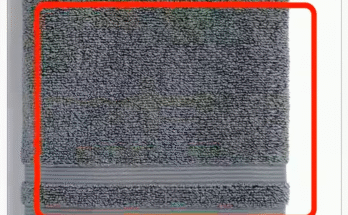
It was a quiet Sunday evening in November 2013 when Donald J. Trump, the businessman known for his luxury empire and outspoken opinions, typed out a tweet from his phone. The screen glowed in the dim light of his penthouse office at Trump Tower. With a few taps, he sent his thoughts out into the digital world:
“Remember that I predicted a long time ago that President Obama will attack Iran because of his inability to negotiate properly—not skilled!”
The tweet was bold, provocative, and perfectly aligned with Trump’s combative style. At the time, few could predict just how important his words would become in shaping public discourse, especially when he himself would later become the 45th President of the United States.
The world in 2013 was tense. Iran’s nuclear program was at the center of global concern, and negotiations between Iran and the P5+1 countries were gaining momentum. President Obama had opted for diplomacy, pushing toward what would eventually become the 2015 Joint Comprehensive Plan of Action (JCPOA), a deal aimed at preventing Iran from acquiring nuclear weapons.
But Trump had long believed in a different approach. He saw negotiations as a battlefield, where only strength and leverage could win. His tweet wasn’t just a prediction; it was a public judgment, an attack on Obama’s style and decisions. He painted the former President as weak, unfit to make deals that would secure American interests.
In the early hours of the following Monday, the tweet began to make its rounds. It appeared on political forums, conservative news blogs, and even late-night talk shows. Some dismissed it as another attention-seeking statement. Others, especially within the conservative sphere, nodded in agreement.
Fast forward three years to 2016, and that tweet became a talking point during Trump’s presidential campaign. Critics dug it up to showcase his aggressive foreign policy views, while supporters lauded him as a man who “called it early.”
Then came 2018. Now President, Trump withdrew the United States from the very Iran deal Obama had championed, calling it “one of the worst deals ever.” In doing so, he reignited tensions with Iran and tightened sanctions, drawing the two countries closer to confrontation. Ironically, it was under Trump’s own administration that the possibility of military conflict with Iran escalated more than it had under Obama.
The tweet was revisited yet again, now carrying a strange weight. Trump had once warned that Obama would start a war to boost his popularity, but now he faced accusations of doing the same. After ordering the drone strike that killed Iranian General Qassem Soleimani in January 2020, questions swirled: Was this a strategic move, or political theater?
Political analysts dissected the old tweet like archaeologists studying a ruin. What had been an offhand criticism years ago was now a ghost haunting Trump’s own presidency. Was it projection? Irony? Or was Trump simply making good on his promise of a different kind of foreign policy?
In classrooms, the tweet was used in media studies courses to show how social media had changed the way politicians communicated with the public. It wasn’t just about policy anymore—it was about personality, prediction, and performance.
To his supporters, the 2013 tweet became a mark of foresight. “He said it before anyone else,” they’d argue. To his critics, it was yet another example of Trump’s pattern of shifting blame, distorting reality, and underestimating the complexities of diplomacy.
Years later, the tweet would still circulate on the internet, often reposted during tense moments in U.S.-Iran relations or in discussions about the power of words from public figures. It became a snapshot of a time before Trump was president, a glimpse into his mindset, and a subtle foreshadowing of the brash style of leadership he would bring to the White House.
But most of all, the tweet stood as a reminder of how a few characters on a screen could ripple through time—stirring debate, controversy, and reflection long after they were typed.


